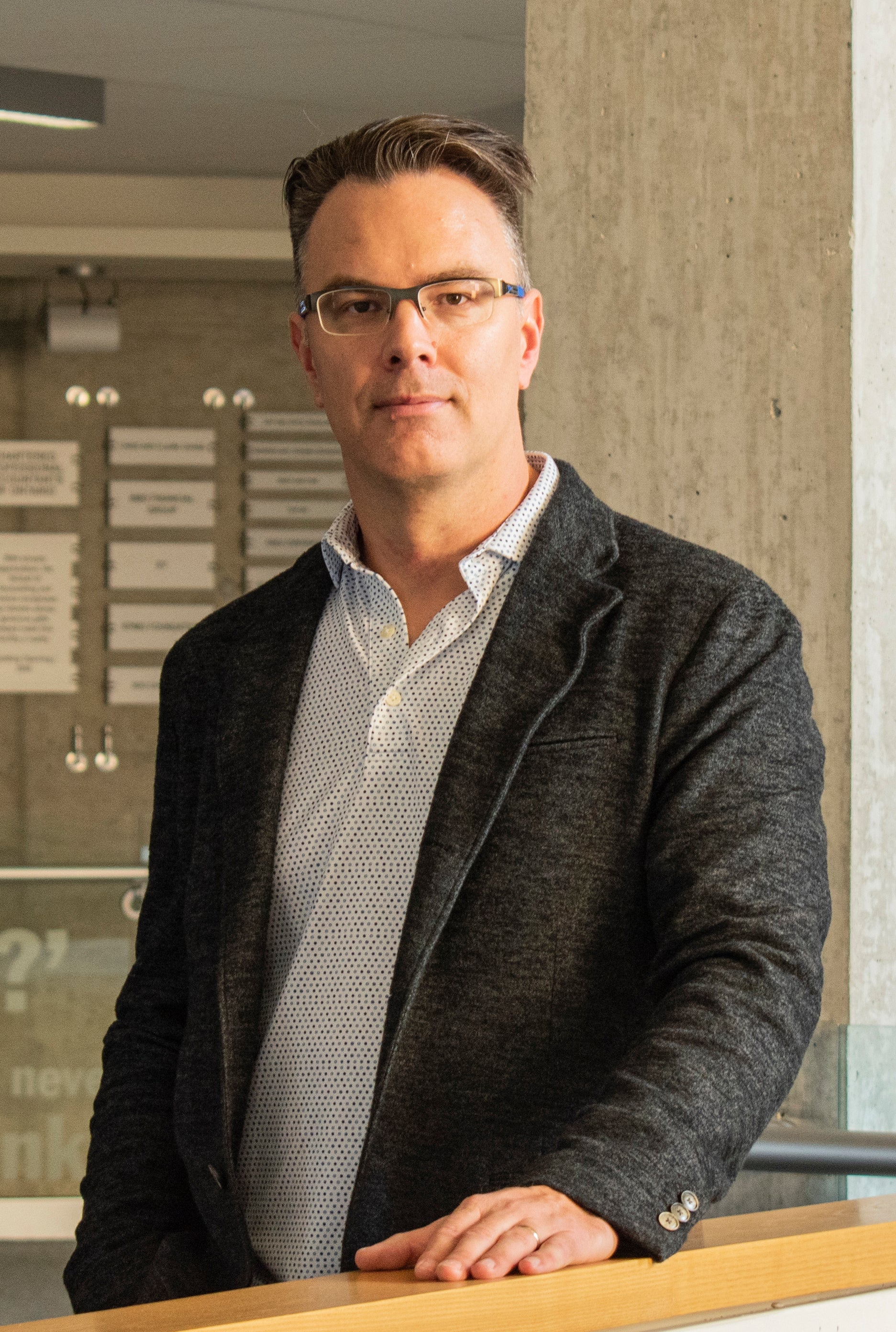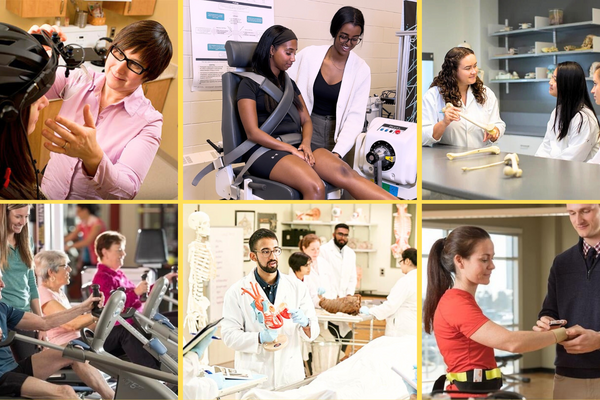
Mastering durable skills
Equipping accounting and finance graduates for a new skills economy

Equipping accounting and finance graduates for a new skills economy
By Patty Mah School of Accounting and FinanceWe have entered the Fourth Industrial Revolution with technology spearheading and transforming the workforce and the future of business. It’s happening all around us. Blockbuster went bankrupt with the introduction of streaming services like Netflix. Taxis have repositioned their business models due to app-driven ride-share programs like Uber. Roles of financial advising and investing are becoming obsolete with algorithmically programmed robo-investors.
Graduates will not only be required to have the skills and knowledge to work with an ever-changing technology-driven future, but also adapt effectively to a new and potential on-going virtual environment as the world grapples with our current global pandemic.
To prepare future-ready graduates and equip them with the skills and knowledge required for a constantly volatile, uncertain and complex future, School of Accounting and Finance (SAF) professors, Nancy Vanden Bosch and Blake Phillips, have redefined what and how the SAF delivers Waterloo’s accounting and finance curriculum.
The new tool kit for a skills economy
“It will no longer be sufficient for our people to have only strong technical skills in our traditional competencies like tax and legal, accounting, assurance and consulting. They’ll need much broader skill sets,”1 says Betty Ann Jarrett (MAcc ‘86, CPA, CA), global human capital leader at PwC.
“Soft skills will mean a lot. Grads will need to be able to work in teams, communicate and solve problems. Problems that don’t yet exist or no one knows how to solve. And being comfortable with identifying and acquiring the knowledge and skills to solve problems,” Vanden Bosch says.
Technical skills required for a profession will become basic foundation. As emotionally intelligent beings, we value judgement, relationships and human interaction. Phillips identifies these as “the human pieces of humanity” and the skills that will become the new tool kit for the future of work.
 Blake Phillips, professor at the School of Accounting and Finance
Blake Phillips, professor at the School of Accounting and Finance
“Core skills that are universal, like critical thinking, adaptability, leadership and followership will be in demand by any employer, no matter what the disruption will be. Teams will be tasked to solve problems to the best of their ability at the moment, but need to be ready to improve, refine, adjust and adapt as disruption continues,” Phillips adds.
More and more traditional companies will operate with an inter-disciplinary team-based model. Financial analysts who traditionally worked with the same colleagues within their finance team will soon find themselves placed on project teams with colleagues from their organization’s accounting, communications or even sales departments. The ability to collaborate effectively with colleagues by leveraging differing knowledge backgrounds and perspectives for the same end-goal means that soft skills are highly important to be able to communicate perspectives and to find common ground and connections for teams to solve complex problems.
The road to mastering durable skills
Every student since grade school would have been told that soft skills are important to develop. Soft skills have come to be known as “durable skills” because these skills will be highly valued in the future workforce.
The challenge lies in the fact that critical thinking, adaptability, communication and collaboration can’t be taught, but rather students need to be placed in situations where they’re learning by doing. They need to learn to collaborate with a team — think critically through a problem, ask the right questions and communicate their ideas — adapting their learning and possibly the team’s solutions to fit the situation. In our new reality, this means team collaboration and communication will be done viturally.
 Nancy Vanden Bosch, professor at the School of Accounting and Finance
Nancy Vanden Bosch, professor at the School of Accounting and Finance
The redesign of the Accounting and Financial Management (AFM) curriculum incorporates more learning and experiential opportunities that integrates “what we want the students to know, but also what we want them to be able to do,” Vanden Bosch says. Teaching the technical aspects of accounting and finance is the easy part, but it’s the practice and application in simulated and real-world situations that takes learning from the technical to the development of durable skills.
It is difficult to get students to practice and apply what they’ve learned and not just memorize content for their mid-terms and final exams. Development of durable skills is effective only when there is a consistent feedback loop between teacher and learner. Scaling this concept, where not every student learns in the same way, required a complete refocus of pedagogy.
AFM first year students are introduced to an active learning environment from day one of their courses. Students are assigned to a team-based group of four to six, known as a Crew. Students learn together, provide each other with support and feedback, and attend social events together — accelerating each other’s learning outcomes and skills development as they adapt and activitely participate in an online learning environment.
In the driver’s seat of your own learning
AFM’s learning environment delivers classroom learning with diverse co-op and experiential opportunities where the student is in the driver’s seat of their own learning. The AFM curriculum is a mix of problem-based, team-based, case-based and lecture-based learning, combined with experiential opportunities. This mix provides a range of learning opportunities, addressing the many different ways a student learns, enabling development and application of the very skills that are in demand for future-ready graduates.
Gone will be the projects and assignments with right and wrong answers. Experientially-based teaching methods simulate a workplace environment and student Crews are given a technical challenge. Learning outcomes and results from each team project can be different as will be the learning pathway for each student and team. The active learning environment provides a framework where each student strengthens their critical thinking, communication, problem solving and adaptability skills as a team supporting each other’s learning pathway.
Vanden Bosch and Phillips are optimistic that AFM’s active learning environment will empower students to be life-long learners and to be comfortable with being uncomfortable to maximize their learning and growth, personally and professionally. Waterloo’s future-ready accounting and finance graduates will be equipped with the skills and knowledge for career success as well as career mobility.
1 Workday Podcast: Future-Proofing the Professional Services Workforce, https://blog.workday.com/en-us/2020/workday-podcast-future-proofing-the-professional-services-workforce.html#.Xl-1lfDoeFE.linkedin, March 2, 2020

Read more
From optometry and pharmacy to public health and therapeutics, Waterloo alumni are powering Canada’s health care sector

Read more
From co-op to community, grads offer insights and inspiration for the next generation of students

Read more
Meet five exceptional Waterloo graduate students crossing the convocation stage as Class of 2025 valedictorians
The University of Waterloo acknowledges that much of our work takes place on the traditional territory of the Neutral, Anishinaabeg, and Haudenosaunee peoples. Our main campus is situated on the Haldimand Tract, the land granted to the Six Nations that includes six miles on each side of the Grand River. Our active work toward reconciliation takes place across our campuses through research, learning, teaching, and community building, and is co-ordinated within the Office of Indigenous Relations.